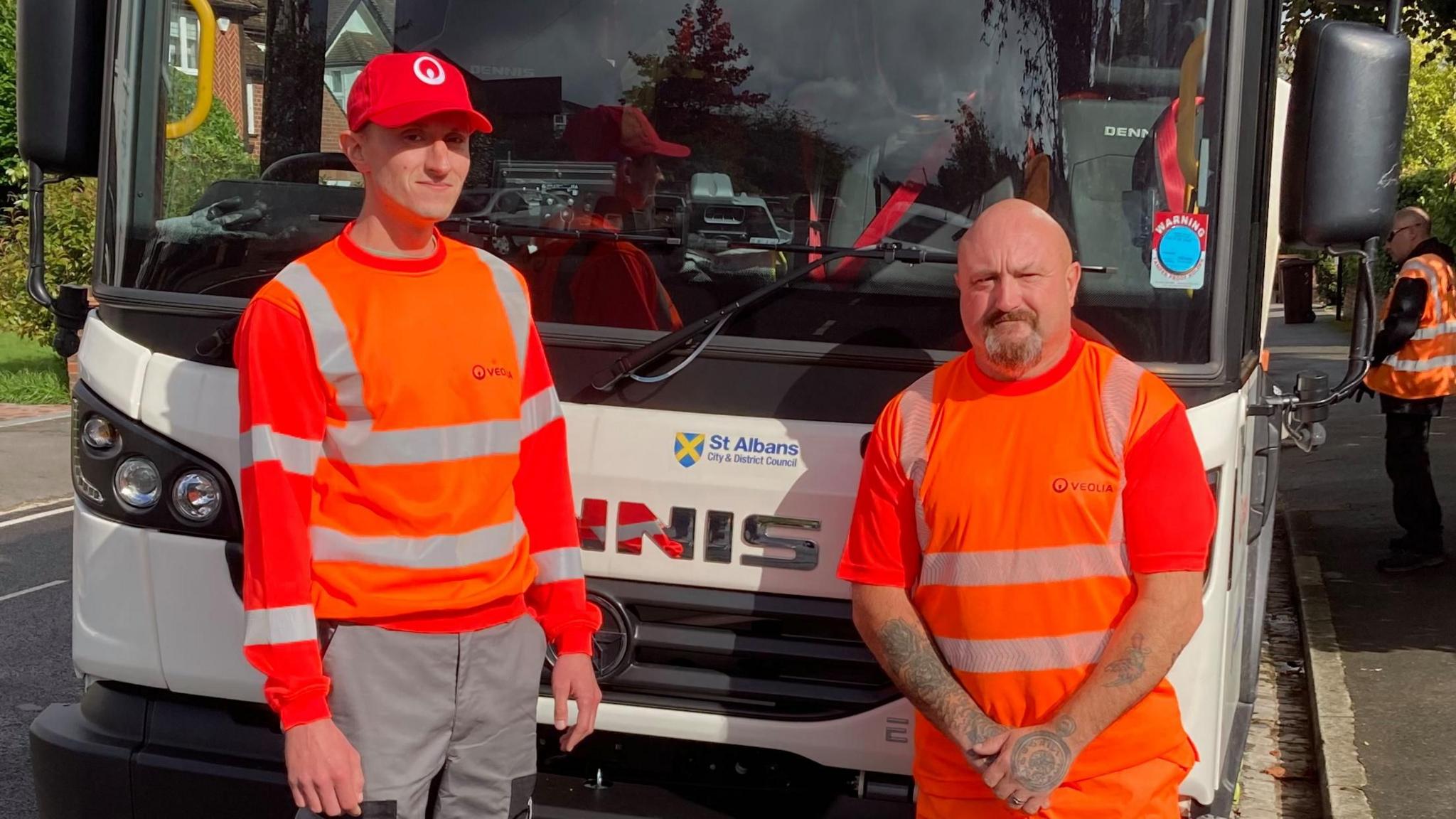'I was given another chance as a mum thanks to CPR'
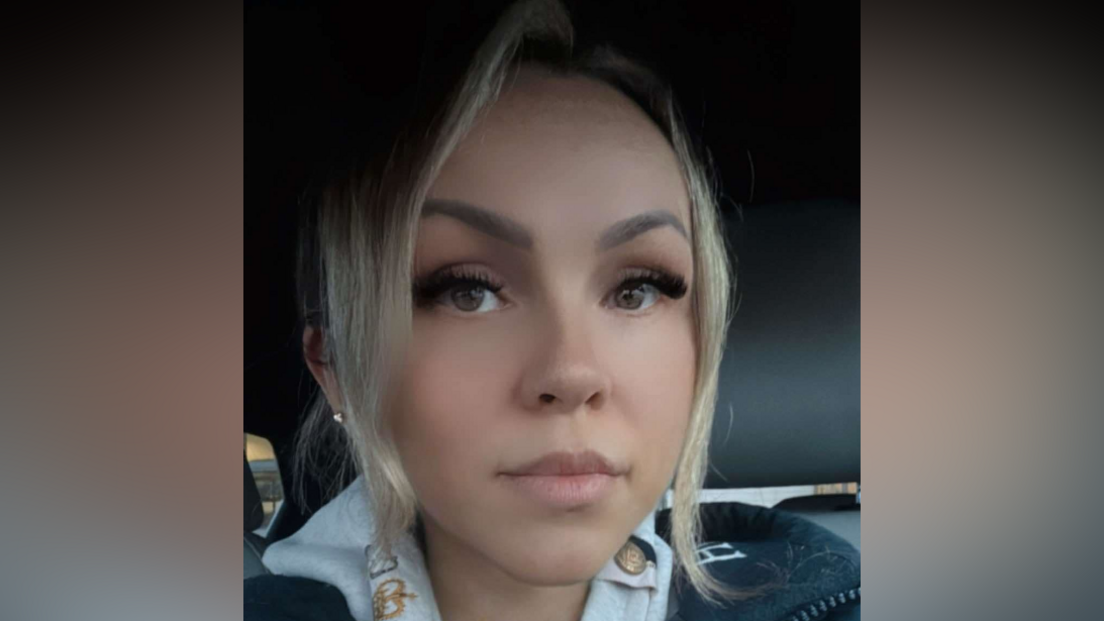
Kylie Jillings was saved by CPR two weeks after she had given birth to her daughter
- Published
Kylie Jillings was 18 when she almost died after suffering swelling on her brain.
The mum from Lowestoft, Suffolk, who had just had her first baby, was saved only after paramedics performed CPR on her.
Mrs Jillings, who is now 37, said she was extremely grateful to have been given a "second chance" of being a mum.
She is now encouraging people not to be afraid of CPR after research from St John Ambulance found a third of people in the country are afraid to give CPR to a woman, external because they were worried about touching her breasts.
Mrs Jillings had just had her daughter in 2006 when she was taken to hospital.
The swelling on her brain led to full body paralysis, and during surgery she had to be given CPR.
"It took a lot out of me," she said.
"I didn't care [what they did] as long as they got me home to my baby.
"I was just glad to be home and have a second chance of being a mum – she was only two weeks old when I went into hospital.
"I missed a big chunk [of her life] and then I had a chance to do it again."
'Get her back home'
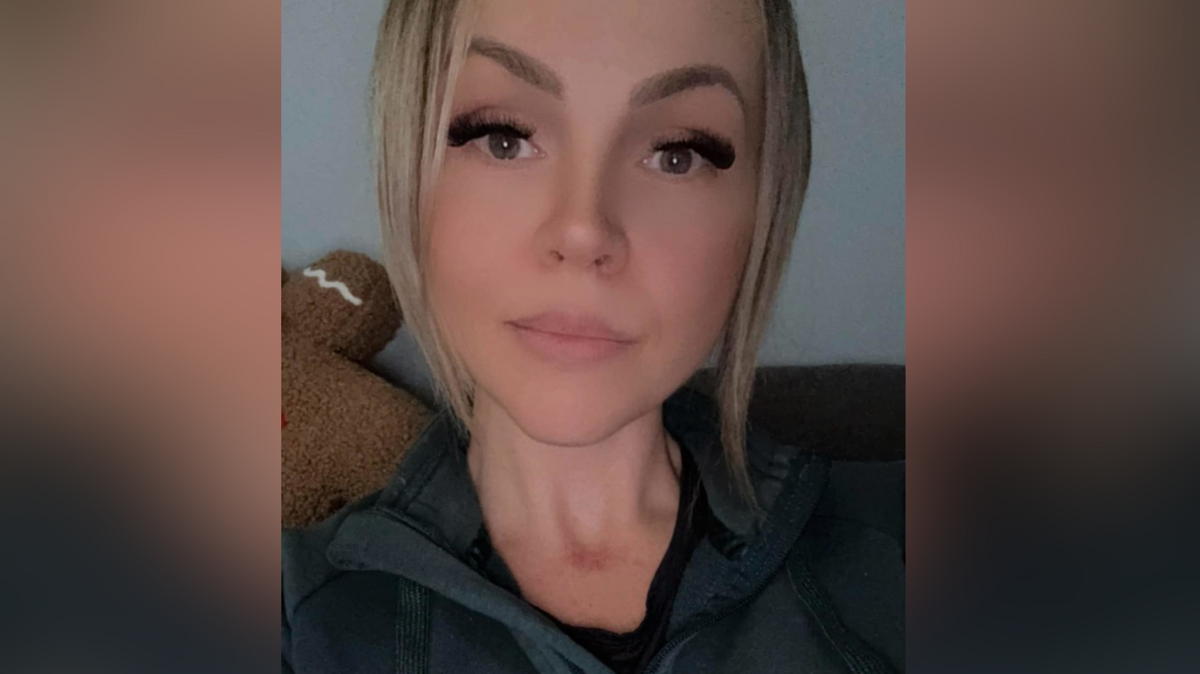
Kylie Jillings suffered more brain swelling following the initial bout but has had no other major scares since
Mrs Jillings believed people feared giving CPR to women due to worrying "about too many things".
"Really they should be focused on trying to save that person – that should be the priority," she said.
"Just think about that woman's family and that woman. Try to get her back home to her family.
"You only get one shot at life. Don't take away someone's chance at living. If you can help get that person home to their family then please try."
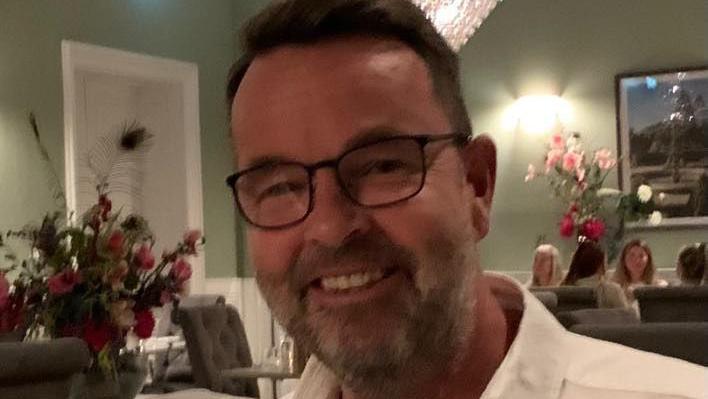
Jon Regester saved his neighbour with CPR
Jon Regester, 59, also from Lowestoft, helped save his female neighbour in 2019 by giving her CPR before paramedics stepped in.
He works in cardiac rehabilitation, and although he had never had to do CPR before he said he "didn't hesitate".
"I continued to do the CPR on her while I had my phone on to the emergency services," he said.
"They talked me through it and then another neighbour appeared, and they were urging me to take turns because it can be tiring."
'No shame'
Paramedics used a defibrillator before Mr Regester's neighbour came round and was taken to hospital.
Mr Regester, who said it was an emotional and surreal experience, said he understood the the St John Ambulance research, which suggested some might be uncomfortable touching women as well as lacking the general courage to carry out CPR.
But he said: "You haven't got to take their clothes off. You can do it through their clothes, and when [the paramedics] come and shock [the patient] you can stand aside."
He said there was "no shame" in being frightened of carrying out CPR but encouraged people to "just try to do what you can".
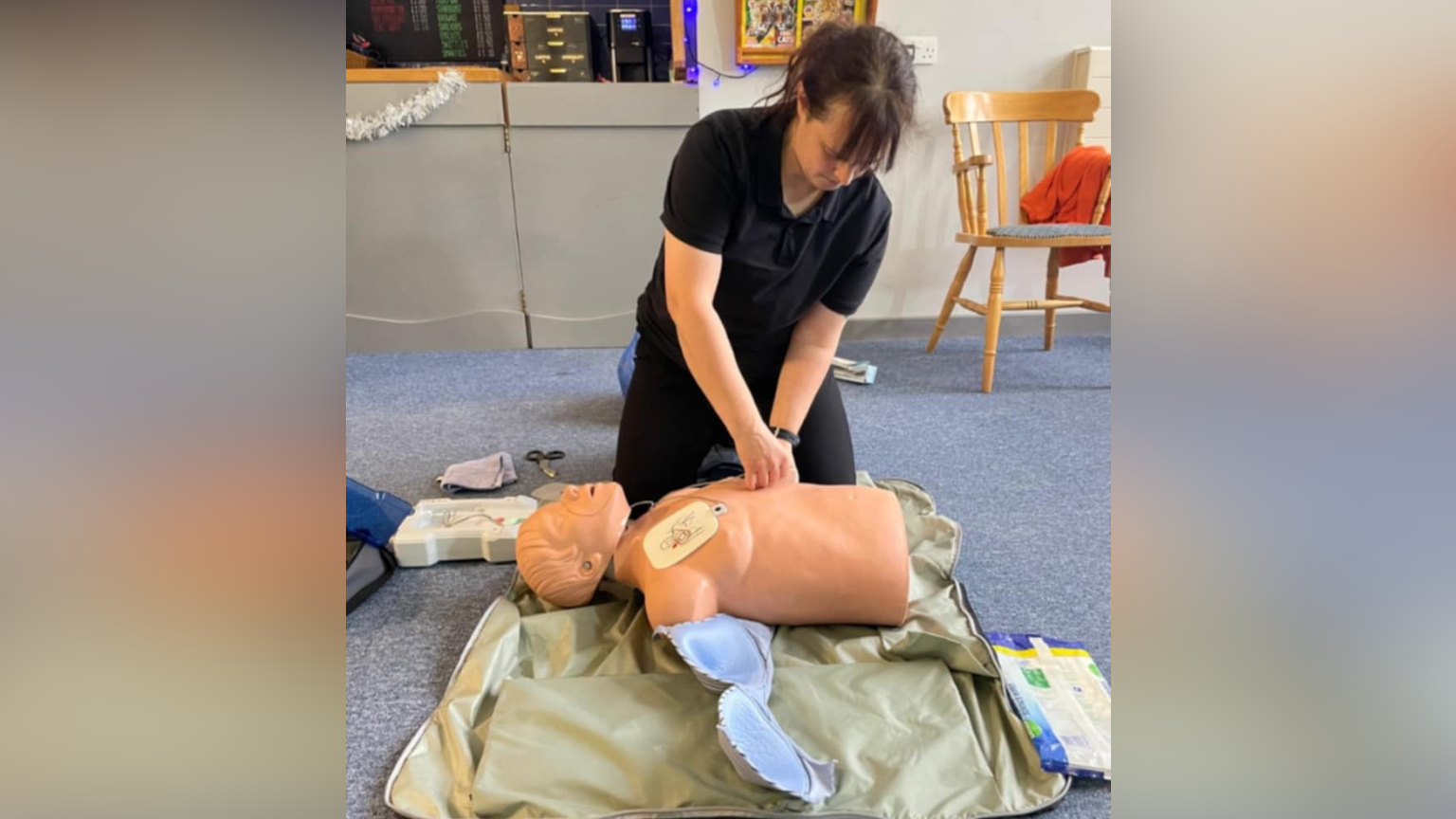
Nikki Banks, a first aid trainer, said she often heard concerns from people being afraid to give CPR to women
Nikki Banks, 50, from Brandon, Suffolk, is a first aid instructor who works with the charity Bra Off Defib On, which tries to normalise the idea of removing bras during CPR so a defibrillator can be used.
She described the St John Ambulance research as "quite frightening".
"I do think sometimes men are worried going to women, and that's possibly where it's come from," she added.
Dummies used during CPR training are often based on a man's body.
But more dummies based on women are being made, and Miss Banks said trainers could also get chest pieces to put on them.
'Lifesaving stuff'
In her training sessions, Miss Banks said she placed different types of bras on dummies to get people into the habit of taking them off in preparation for the defibrillator.
"You just don't know unless you know," she said. "The fact is you've got to get the defib pads on skin.
"Everybody has so far been very professional about it and saw it for what it was – as lifesaving stuff."
Miss Banks encouraged anyone doing CPR to call 999 for guidance on the process.
"They'll put your mind at ease," she added.
"They're very calm-natured people. They could teach a five-year-old."
Get in touch
Do you have a story suggestion for Suffolk?
Follow Suffolk news on BBC Sounds, Facebook, external, Instagram, external and X, external.
Stories like this
- Published25 November 2024
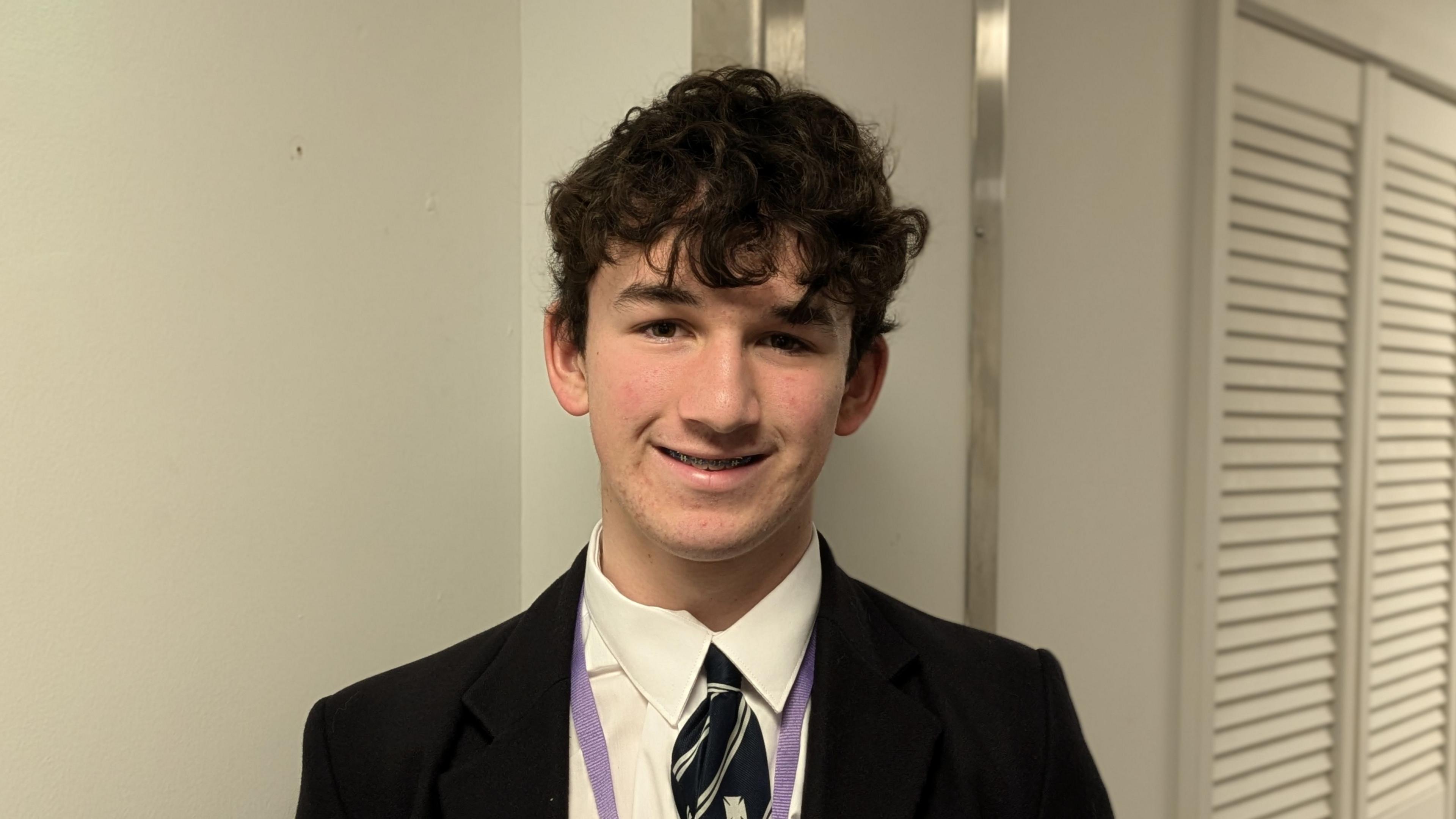
- Published31 October 2024
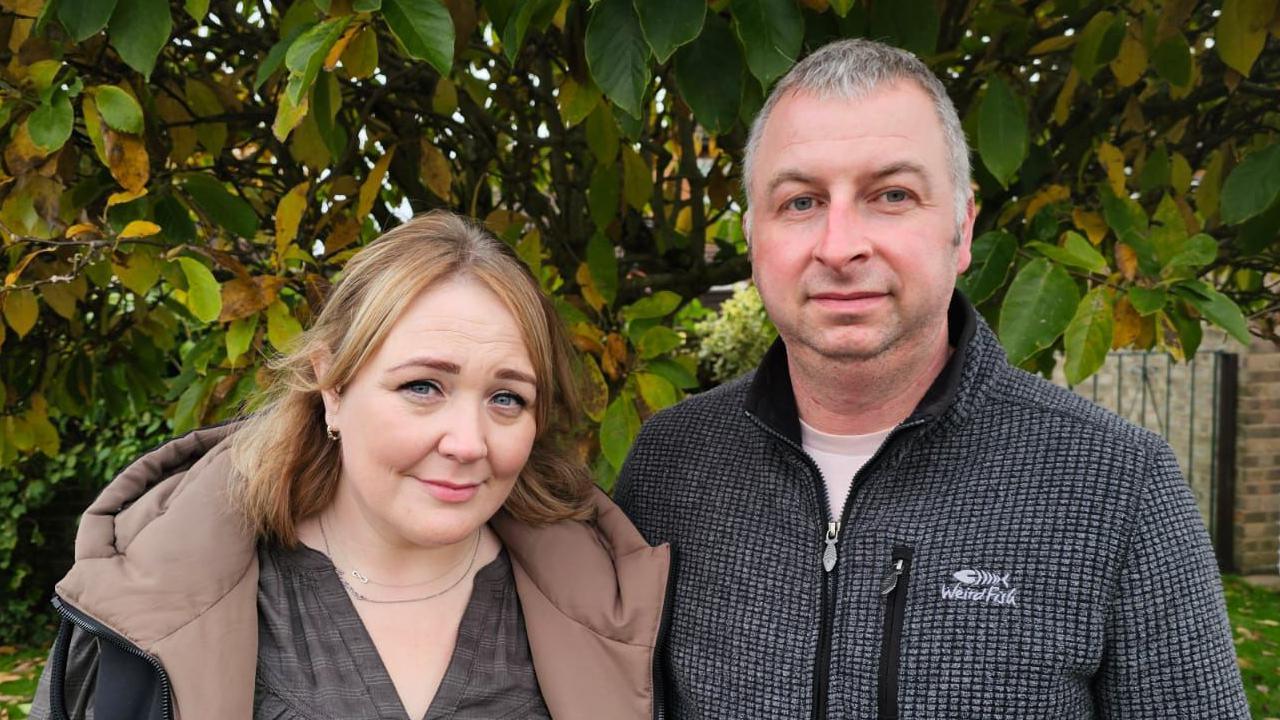
- Published30 September 2024
